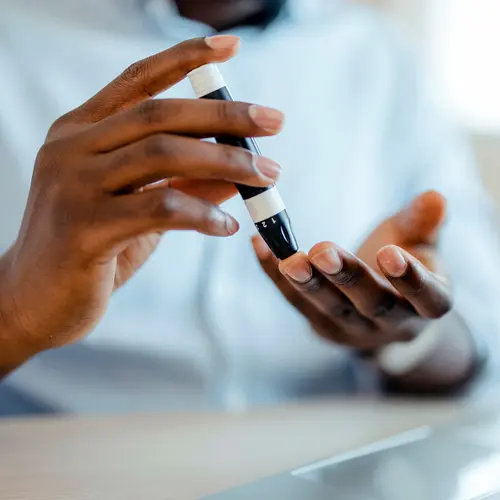Insulin-like growth factor-1 (IGF-1 or IGF) is a hormone your liver makes. One of its main jobs is to tell your bones and muscles to grow. It’s in the same family as the hormone insulin and acts a lot like it. IGF affects how your cells use blood sugar, or glucose.
The Type 2 Diabetes Link
Insulin helps the glucose from food you eat enter your cells, where it’s used for energy. When your body doesn’t use insulin the way it should, it’s harder for glucose to get into your cells. This is called insulin resistance. Your pancreas starts to pump out more insulin to pick up the slack. But if it can’t keep up, glucose builds up in your blood. The end result is often type 2 diabetes.
People with low IGF levels are also more likely to have metabolic syndrome. That’s a group of health problems that includes high blood pressure, high cholesterol, and belly fat. Together, they raise your chance of having heart disease and type 2 diabetes.
Can IGF Treat Diabetes?
That’s a question researchers are trying to answer. One clue may come from a medicine called mecasermin (Increlex). It’s a synthetic, or man-made, form of IGF. Doctors use it to treat kids who aren’t growing the way they should. Low blood sugar (hypoglycemia) is one side effect of the drug. IGF also lowered blood sugar in studies of adults with type 2 diabetes. Insulin resistance got much better in these patients. IGF plays many different roles in the body, so there’s still a lot to learn about how it works. Right now, IGF is approved only for growth problems in children.
Side Effects
IGF can cause serious side effects, like swelling in the retina. That’s the part of the eye that sends signals to your brain to help you see. Other side effects include severe muscle and joint pain and Bell’s palsy. This causes weakness and drooping on one side of your face that can look like a stroke. IGF has also been linked to breast, colon, lung, and prostate cancers.
What About Supplements?
Some bodybuilders and other athletes take over-the-counter (OTC) or prescription IGF to get bigger and stronger. The World Anti-Doping Agency (WADA) has banned all forms of IGF, including supplements. It says prescription IGF can permanently damage your joints, liver, and heart. OTC supplements aren’t regulated, so there’s no telling what’s in them.
Other people take IGF for anti-aging or overall health. You make less IGF as you get older, but there’s no proof that taking it keeps you young. This idea comes from research on a drug called metformin (Glucophage). It’s the most common prescription medicine for type 2 diabetes. In studies, metformin helped worms and mice live longer. One study found it slowed aging in human cells in the lab. Researchers don’t yet know how it works in people. Talk to a doctor if you’re thinking about taking an IGF supplement.

